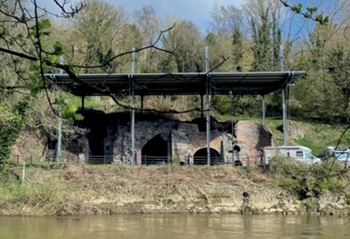Building warranty
Warranty can have a number of meanings, but in general, refer to a legally binding assurance or promise. They may be used to provide assurance from one party to another that goods and/or services will meet certain expectations, e.g. fit for purpose, being free from defects, complying with statutory and other regulations and specifications.
The UK planning portal defines a building warranty as 'a comprehensive insurance policy that is provided by a developer to the owner/buyer. It offers peace of mind that the building has been constructed to a standard set by the warranty provider. Most providers of building warranties offer policies for: Residential buildings. Custom-builds. Affordable housing developments or Commercial premises. Buyers of the buildings within new developments will look for the reassurance of a warranty. Particularly in the case of a new build home; It is a condition of most mortgage applications that a structural warranty is in place for newly built or converted properties and it can be difficult to sell the building further without a warranty, if it is less than ten years old.'
Warranties can be either express or implied: An express warranty is a specific promise that is made by a seller to a buyer, which is usually written down but can also be orally agreed. Where no such communication has occurred or evidenced to have occurred, an implied warranty may come into force. An implied warranty might be automatically presumed by a buyer with regard to the sale of goods or property, effectively a guarantees that a product or service will work as can be reasonably expected, prevent risks of it not working being transferred to the buyer.
A common form of warranty, and one that is paid for, and runs with product, meaning that the customer of a product is given an assurance by the manufacturer that any defects or losses will be repaired or compensated during a given period, such a warranty usually details the rights and obligations of both parties’ in the event of a dispute.
The Get It Right Initiative (GIRI) in 2024 published 'The GIRI Insurance Guide: A perspective on risk management for construction projects' which describes a building / structural warranty as providing 'cover for ‘latent defects’ beyond the defects period. They are often bought by the contractor but provide cover for the client, or the end users i.e. IDI policiies (inherent [or latent] defect insurance), usually for a period of ten years.
[edit] Related articles on Designing Buildings
- Agency.
- Best endeavours.
- Bonds.
- Bonds v guarantees.
- Breach of contract.
- Collateral warranties.
- Defects.
- Definition of collateral warranty.
- Difference between collateral warranties and third party rights.
- Duty.
- Duty of care.
- Fit for purpose.
- Good faith.
- Guarantees.
- Insurance.
- Miller Act.
- New home warranty.
- Performance bond.
- Practical considerations of collateral warranties.
- Professional consultant's certificate.
- Reasonable endeavours.
- Reasonable skill and care.
- Retention.
- Warranty.
- Workmanlike manner.
Featured articles and news
The act of preservation may sometimes be futile.
Twas the site before Christmas...
A rhyme for the industry and a thankyou to our supporters.
Plumbing and heating systems in schools
New apprentice pay rates coming into effect in the new year
Addressing the impact of recent national minimum wage changes.
EBSSA support for the new industry competence structure
The Engineering and Building Services Skills Authority, in working group 2.
Notes from BSRIA Sustainable Futures briefing
From carbon down to the all important customer: Redefining Retrofit for Net Zero Living.
Principal Designer: A New Opportunity for Architects
ACA launches a Principal Designer Register for architects.
A new government plan for housing and nature recovery
Exploring a new housing and infrastructure nature recovery framework.
Leveraging technology to enhance prospects for students
A case study on the significance of the Autodesk Revit certification.
Fundamental Review of Building Regulations Guidance
Announced during commons debate on the Grenfell Inquiry Phase 2 report.
CIAT responds to the updated National Planning Policy Framework
With key changes in the revised NPPF outlined.
Councils and communities highlighted for delivery of common-sense housing in planning overhaul
As government follows up with mandatory housing targets.


















